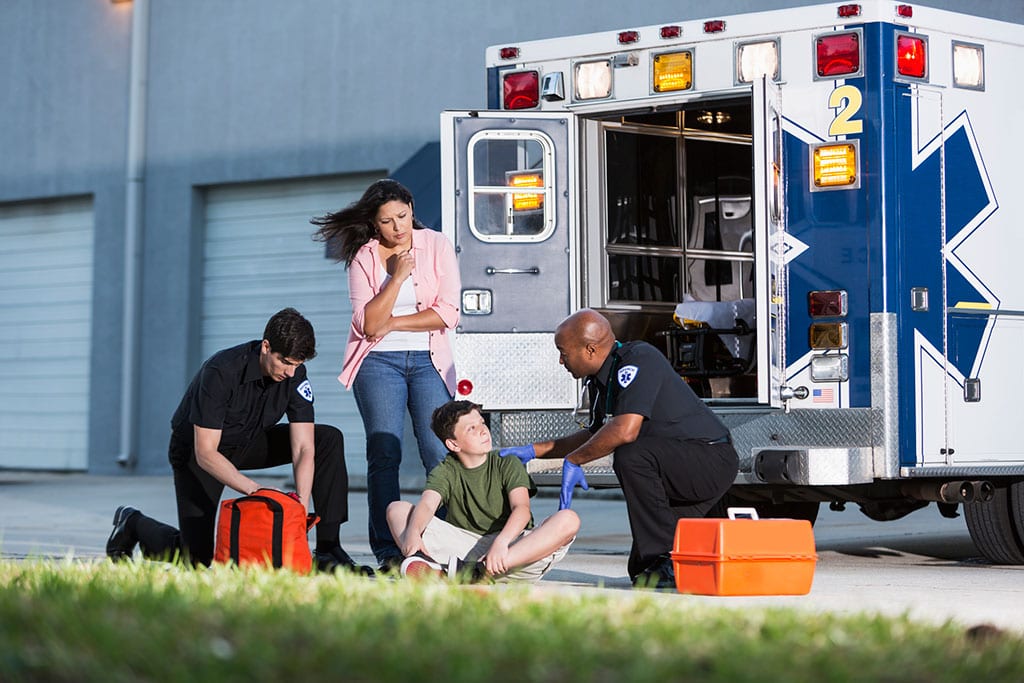Paramedics in BC – Levels of Emergency Medical Assistants
Qualified paramedics in BC are broadly referred to as Emergency Medical Assistants (EMA) and are licensed by the Emergency Medical Assistants, Province of BC Licensing Board (EMALB), a government agency.
There are varying levels of EMA licenses in British Columbia and each level broadens the licensee’s capacity for clinical decision-making while also expanding access to a wider range of equipment and medication:

- Emergency Medical Responders (EMR) provide fundamental emergency services, typically in rural and remote areas.
- Primary Care Paramedics (PCP) provide intermediate-level emergency services in all areas of the province. Required to become a full-time Paramedic with BCEHS.
- Advanced Care Paramedics (ACP) specialize in advanced life-support, including advanced cardiac care.
- Critical Care Paramedics (CCP) specialize in critical care services and transport (including air transport).
Full scope of practice outlines (at a national level) for all levels of Paramedics are available through the Paramedics Association of Canada (PAC) website. These are outlined in the National Occupational Competency Profiles (NOCP’s) on their website.
How to become a PCP paramedic in BC
 The easiest way to become a Paramedic in BC is to first obtain an Emergency Medical Responder certificate from HeartSafe EMS which is required in order to do the Emergency Medical Assistant. Province of BC Licensing exams at the EMR level.
The easiest way to become a Paramedic in BC is to first obtain an Emergency Medical Responder certificate from HeartSafe EMS which is required in order to do the Emergency Medical Assistant. Province of BC Licensing exams at the EMR level.
The HeartSafe EMS three-week EMR course also includes the WorkSafe BC Occupational First Aid Level 3 and Canadian Red Cross BLS certificates. The WorkSafe BC OFA Level 3 is essential for those Paramedics who also want to work in a BC regulated industry as an Industrial Medic for example.
Once licensed at the EMR level, graduates can apply for work with the BC Ambulance Service (BCEHS) as well as working on becoming a PCP paramedic whether on a full-time or part-time basis.
In order to be licensed in the province, graduates with certificates from a recognized training agency must complete the appropriate licensing requirements, which include a practical evaluation and a written exam.
Once you graduate from the HeartSafe EMS EMR program you then have the necessary prerequisites to apply for the HeartSafe EMS Primary Care Paramedic (PCP) program.
Prerequisites to Becoming an Emergency Medical Assistant
How to Get a Paramedic License
- Complete a training program that has been recognized by the board.
- Pass the examinations for your license level that have been approved by the board.
- Take your license and get working as a BCEHS Paramedic or Industrial Medic.
EMR, PCP, and ACP licenses are valid for five years and require yearly continuing medical education credits and patient contacts. Details available through the EMALB website.
The scope of practice each license category may provide are described in Schedule 1 of the Emergency Medical Assistants Regulation. A licensee can also be endorsed to perform additional services described in Schedule 2 by getting additional training.
Primary Care Paramedic (PCP)

Primary Care Paramedics practice in a wide variety of paramedical environments, providing emergency services in all areas of the province including Basic Life Support (BLS). Most of the paramedics practice at this level and work with BC Ambulance Services (BCEHS). New roles are also emerging for PCP graduates as emergency room attendants in hospitals.
Primary Care Paramedics are also in demand for Industrial Medic positions in BC and AB.
In order to be eligible to apply to the PCP Program, there are some requirements the most basic prerequisites are:
- Emergency Medical Responder certificate or license
- BLS (formerly CPR C / HCP) Certification
Once licensed in BC you can also apply for a license with the Alberta College of Paramedics. More details available from HeartSafe EMS.
Advanced Care Paramedic (ACP)
Advanced Care Paramedics (ACP) respond to emergency calls in various environments and are qualified to provide advanced life support care. Their scope of practice includes advanced patient assessment, cardiac rhythm interpretation, manual defibrillation, drug therapy, and advanced airway management.
The ACP Program trains students to think critically, solve problems, and function as leaders while providing the highest possible standards of patient care.
- PCP Certificate with minimum of one-year PCP work experience at time of application deadline
- Current CPR BLS (formerly CPR C /HCP) certification
Critical Care Paramedic (CCP)
 Critical Care Paramedics (CCPs) represent the highest level of pre-hospital and inter-hospital care available in BC. These paramedics operate with the goal of instituting and maintaining tertiary-level emergency and ICU care for patients with the greatest need, while facilitating patient transport by air, land, and/or sea to the appropriate medical facility.
Critical Care Paramedics (CCPs) represent the highest level of pre-hospital and inter-hospital care available in BC. These paramedics operate with the goal of instituting and maintaining tertiary-level emergency and ICU care for patients with the greatest need, while facilitating patient transport by air, land, and/or sea to the appropriate medical facility.
CCPs are a specialized team of paramedics that are selected from the field of accomplished Advanced Care Paramedics. They are then tested utilizing the medical school model adapted from Canadian medical schools. CCPs receive an additional 18 months of intense training before being licensed to a CCP level and are then are eligible for a 6-9-month residency.
With further training and considerable work experience, workers in this occupational group may be able to work as supervisors, operations managers or senior administrators. Other related careers include dispatcher, instructor, and salesperson of emergency medical equipment.

